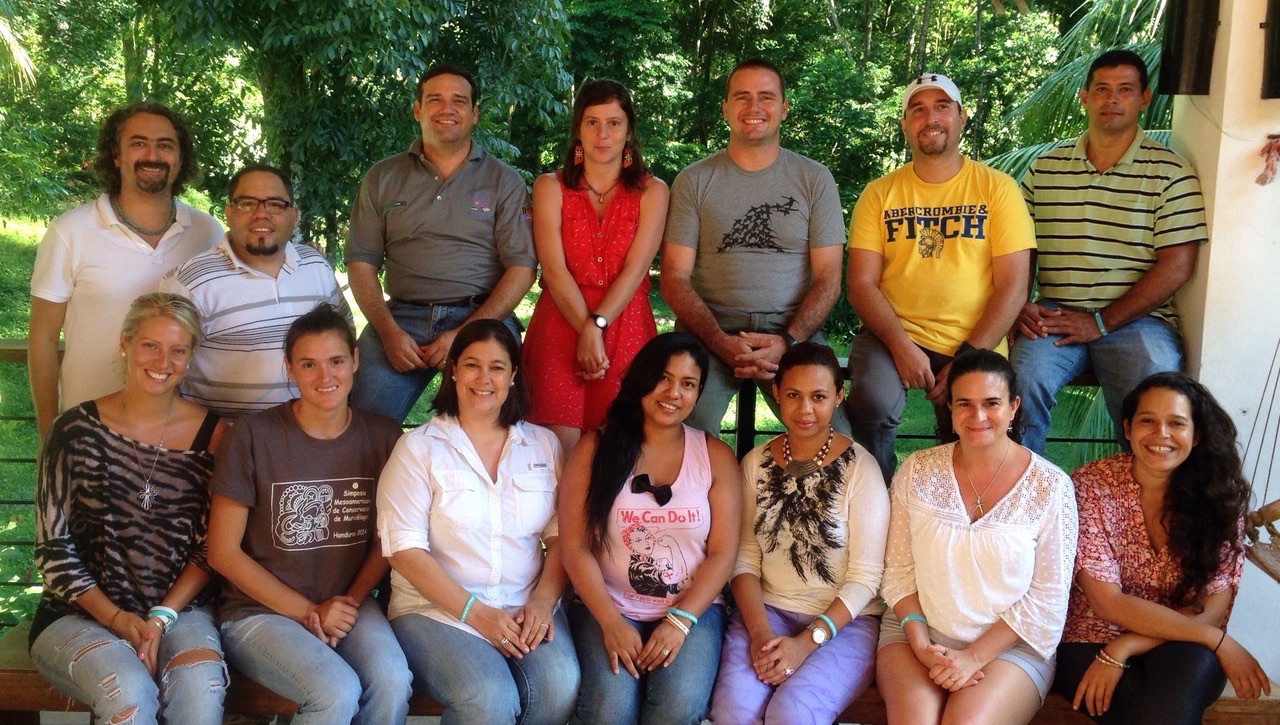
Successful coral reef conservation begins with networks—not only networks of locally-managed marine protected areas, but also networks of people.
That’s why we hosted a meeting on October 27 that brought together more than 13 organizations from Honduras. The day had one goal: to build alliances between a host of organizations that are all working toward the same outcome—a healthy and thriving coastal and marine environment in Honduras.
Rather than a formal agenda, each group presented about their work for 10 minutes, and then led a question and answer session that often turned into lively and stimulating conversations where everyone shared their ideas, their frustrations, what works, and what doesn’t. The meeting was purposefully left rather unstructured to allow for relationships to organically form. And it certainly worked. The group has already had a follow-up meeting, and is collaborating to secure a higher level of involvement and support of marine conservation efforts from the Honduran government.
This meeting preceded a larger workshop hosted by the Healthy Reefs Initiative (HRI), a CORAL partner in the Mesoamerican region, which brought together over 60 groups from Belize, Guatemala, Honduras, and Mexico. The 3-day HRI workshop served to launch a new public database for the MAR that empowers local managers to understand the overall status and trends of their marine environment and make educated conservation decisions. HRI also presented preliminary data that will be included in their 2015 Report Card to be released early next year.
We can’t protect coral reefs alone. Conservation is a global effort, and requires diverse groups coming together to work toward common goals. We’re honored to have incredible NGO partners, like those in Honduras with whom we gathered last week, who are willing to collaborate with us to protect one of our planet’s most precious ecosystems.
